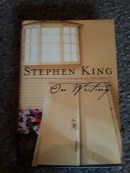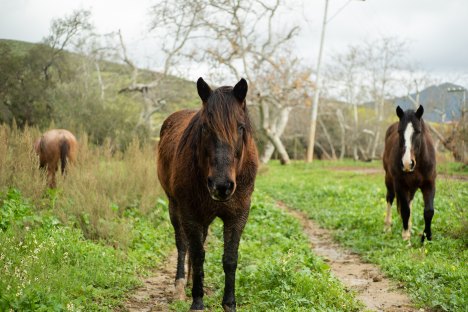I started writing stories as a child. My first story was about Bennie the Green Bean, and I decided I was going to write children’s books. I eventually majored in Journalism in college. At that time, it never occurred to me to try and make a living writing fiction.
-

Photo by Sonja Langford on Unsplash
After more than 20 years working in communications, marketing and public relations, I decided it was time. Time to write my novel. I wasn’t getting any younger. Plus, I had honed my writing skills for years, so knew I could whip out great novels in no time. Ha.
After writing a few days, I began pulling books off my shelves and analyzing them. How much description? How much dialogue? How many characters? Where do you put in the backstory? How do you start the backstory? How many words are in a novel?
These are just 2 of the many bookshelves in my home office.
I was shocked that I didn’t inherently know these things; after all, I had been a voracious reader my entire life. This was harder than I had expected.
As I wrote, I had more questions. How long are chapters? What point of view should I use? Can I write male characters convincingly? I sought out advice and kept writing.
A few other writers attempting to transition from business writing to fiction writing scoff at my advice-seeking and learning the craft of fiction writing. They’re not going to classes or reading books on craft. They’re writing. They say that’s enough. And maybe it is for them.
Other friends expect me to churn out novels because I’ve been writing my whole life. I know they don’t understand it either. “You’re such a good writer,” they say. “How come your books aren’t published yet?”

I’ve attended writing conferences, devoured books on plot, description, character development, and more. Recently, I read a book on how to write about monsters by Philip Athans.
Books and conferences are my candy. I soak up the advice and fully engage in the conference sessions, determining what works for me. My friends laugh and their eyes glaze over as I explain the elements that go into creating a scene or writing dialogue. I enthuse endlessly about what I’m learning. I can’t get enough of this stuff. My fiction writing is so much better than when I started out a few years ago. It’s hard to believe how much I’ve learned.

One of the books I read early in this journey is “On Writing” by Stephen King. He mentions that he is always reading a book on craft. What? Stephen King? I think he is a wonderful storyteller and a gifted writer. When I read that, I thought, “I should do that, too!” That book was published in 2000, so I don’t know if he still does that.
Writing speeches, articles, white papers, strategic plans, press releases and web site copy is not the same as writing fiction. That’s not to say all those years writing don’t help me now; they do, in so many ways.
Of course, I wish I could have sat down and written the great American novel without advice, books, classes or conferences, but it didn’t happen. That’s okay. I’m slowly finding my way. This is an unexpected journey and I am enjoying the ride.
Do you think writing is a talent or a learned skill? What writing resources have you found to help you in your journey?
###





 Posted by Theresa Henige
Posted by Theresa Henige 


